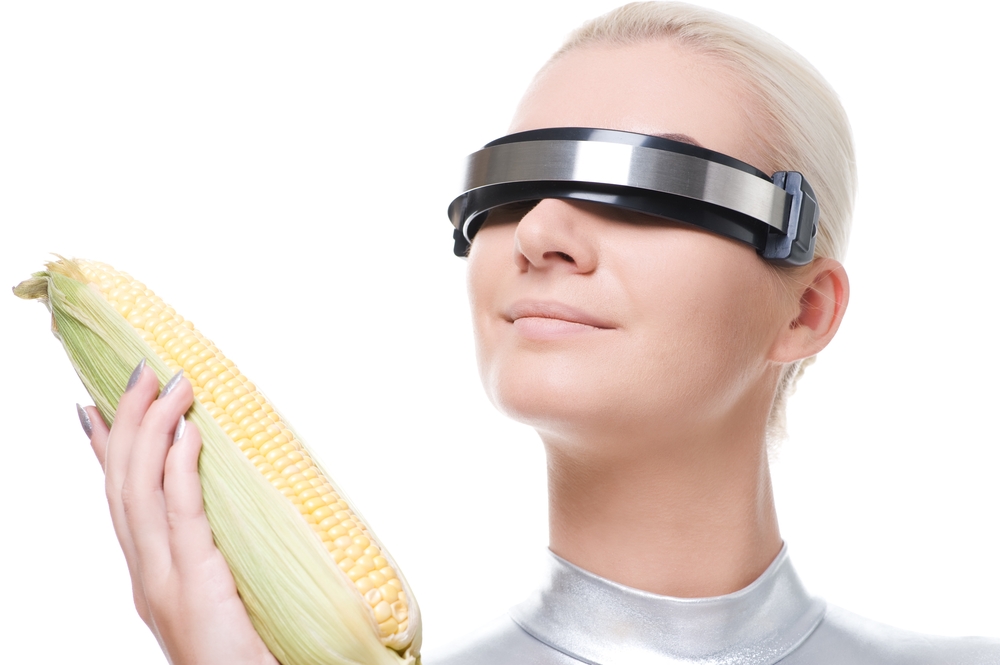What would the world look like with 7 billion people and no way to scientifically have created better ways of producing food?
A lot of poor vegetarians, that's what. And only rich people eating meat.
Organic food corporations love to claim that their process is 'sustainable'. Vegetarians love to claim that meat is both unethical and bad for the planet. It makes them happy partners ... as long as science is ignored.
They are both wrong and those are two of the anti-science myths Alex Berezow and I tackle in Science Left Behind. Organic food would be wonderful if it did everything proponents claim (ethical, natural, nutritionally superior, affordable, etc.) but they are ignoring what everyone in conventional farming knows; it has been science improvements of the last 50 years that has made farming work and food plentiful and affordable, not the recent fad of the organic process, which leverages all of the benefits of agricultural science breakthroughs and then claims those same benefits are bad for us.
In the 1960s and throughout the 1970s, Paul Ehrlich and President Obama's Science Czar Dr. John Holdren weaved a doomsday narrative where the population would explode and people would be starving. Or, if you saw the popular 1973 movie "Soylent Green" (based on the 1966 novel "Make Room! Make Room!" by Harry Harrison), we would be eating people when science failed us, as science must, according to anti-science progressives.(1)
Yet in the face of that cultural alarmism, scientists helped farmers undertake a food revolution unmatched in history; farmers began to produce far more food on far less land. They were effectively 'dematerializing' and society was not forced into mitigation and rationing (or, as Holdren and Ehrlich predicted in their book Ecoscience, forced sterilization and medical implants to prevent pregnancy unless women got government permission) and instead food got cheaper.
Being fat, which was once a privilege reserved for the wealthy, is now available to hundreds of millions of poor people.
Obesity is a good problem to have compared to starvation and the societal benefits in other areas trump worries about being fat; as people worldwide spend less of their wealth on basic needs like food, culture and education spike upward sharply, as has happened in India during the last few decades. New people become part of the global economy and are less reliant on the charity of rich countries. Those are all good things.
Yet despite millenia of evidence that science can solve problems, all we hear from anti-science activists is that we need mitigation, we need rationing, we need to panic. It's cynical, persistent denial of science as one of the most powerful forces for human good in history.
The reality of a vegetarian future is nowhere near as pretty as the marketing claims. Credit: Shutterstock.com
The 1960s and '70s and its doomsday scenarios are quaint, hysterical relics of the past and no one is seriously worried about a population bomb or starving billions today. Dr. John Holdren went from being kooky, alarmist outsider to the ultimate insider for modern academia; a MacArthur genius (for being an arms control analyst, no less) who received numerous other accolades and then became president of the American Association for the Advancement of Science before being touted as the most important scientist in America. Yet other doomsday prophets have taken his place.
Malik Falkenmark and a group from the Stockholm International Water Institute now have a similar claim for the new century; we are approaching a "Water Bomb" that will lead to the same sort of crisis predicted decades ago about food. They are not really saying anything new, in 2000 CNN projected a similar water crisis and said the most at risk will be countries that have to import a great deal of their food. Activists even recently declared that the biggest concern of the UN Security Council is not terrorists attacking embassies in Egypt and Libya or a nuclear Iran, but rather water.
Which countries are most helped by science approaches to food, like genetic optimization that can grow crops in difficult climates and needless water? Those same poor countries that water advocates insist are at risk. Yet instead they contend that vegetarianism is the best approach, because animals use more water than many plants (calorie for calorie) but that is an incredibly cynical anti-science approach to solving problems. Downright nihilistic, since I invoked other 20th century anachronisms.
We have no water issue, we simply have an energy issue. Humans use perhaps 1% of the world's water right now. The anti-science approach to water is forcing people to be vegetarians and creating a have/have-not gap of meat protein eaters, segregating developing nations from those with rich agricultural land.
We don’t even have a food issue, despite what doomsday prophets of today claim, we simply have another front in the culture war on science. That new front is genetic modification, where evidence shows a wealth of benefits and no harm but critics predict science is out to kill us, just like they have for decades.
NOTE





Comments